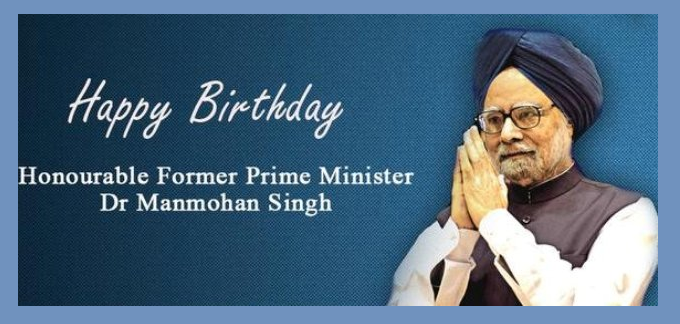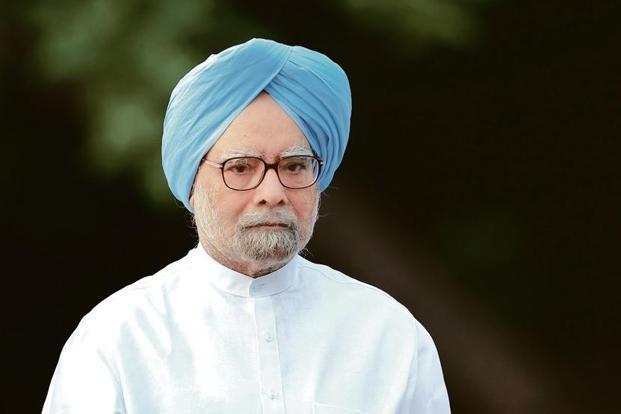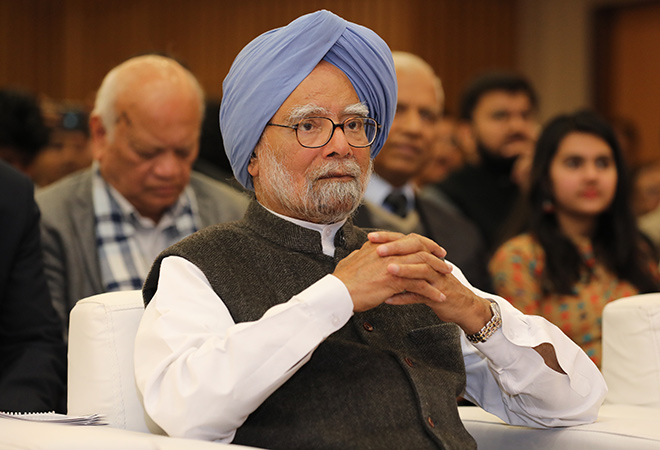Manmohan Singh – The future is inherently uncertain: Birthday Special

Singh was born to Gurmukh Singh and Amrit Kaur on 26 September 1932, in Gah (now in Punjab Pakistan), Punjab, British India, into a Sikh family. He lost his mother when he was very young and was raised by his paternal grandmother, to whom he was very close.
Manmohan Singh is the first Sikh Prime Minister and second, after Jawahar Lal Nehru to be re-elected as Prime Minister after completion of his term in 2009.

After obtaining his doctorate in economics from Oxford, Singh worked for the United Nations during 1966–69. He subsequently began his bureaucratic career when Lalit Narayan Mishra hired him as an advisor in the Ministry of Commerce and Industry. Over the 70s and 80s, Singh held several key posts in the Government of India, such as Chief Economic Advisor (1972–76), governor of the Reserve Bank (1982–85) and head of the Planning Commission (1985–87).
In 2004, when the Congress-led United Progressive Alliance (UPA) came to power, its chairperson Sonia Gandhi unexpectedly relinquished the premiership to Manmohan Singh. Singh’s First Ministry executed several key legislations and projects, including the Rural Health Mission, Unique Identification Authority, Rural Employment Guarantee Scheme, and Right to Information Act. In 2008, opposition to a historic civil nuclear agreement with the United States (US).

The 2009 general election saw the UPA return with an increased mandate, with Singh retaining the office of Prime Minister. Over the next few years, Singh’s second ministry government faced a number of corruption charges—over the organization of the 2010 Commonwealth Games, the 2G spectrum allocation case and the allocation of coal blocks. After his term ended in 2014
Manmohan is being charged of being just a poster boy of UPA government as there are certain claims that he was govern by Sonia Gandhi. How can one honestly judge Manmohan Singh’s legacy without looking at the role played by Sonia Gandhi and her family as well as the Congress party? And if Sonia was the power behind the throne, how can one ignore his ‘shadow’ and ‘Sherpa’ Montek Singh Ahluwalia? An appraisal of Manmohan’s tenure cannot ignore the role played by both of these allies. While Sonia says she was always ‘correct’ in her dealings with the PM, the proof of the pudding lies in the abysmal self-promotion of the UPA—one that lies at the heart of the problems facing Manmohan and the Congress today.
Few quotes of Manmohan Singh:
Life is never free of contradictions.
judiciary must be encouraged to find ways and means to regulate its own affairs – consistent with the spirit of the Constitution.
Every day, the Prime Minister is a 24-hour servant of the people of India.
Certainly, I cannot say that my government’s relationship with Pakistan was free of problems. I think the control of terror is our primary concern. And Pakistan made promises it didn’t keep.
We are a mixed economy. We will remain a mixed economy. The public and private sector will continue to play a very important role. The private sector in our country has very ample scope and I am confident that India’s entrepreneurs have the capacity, and the will to rise to the occasion.
